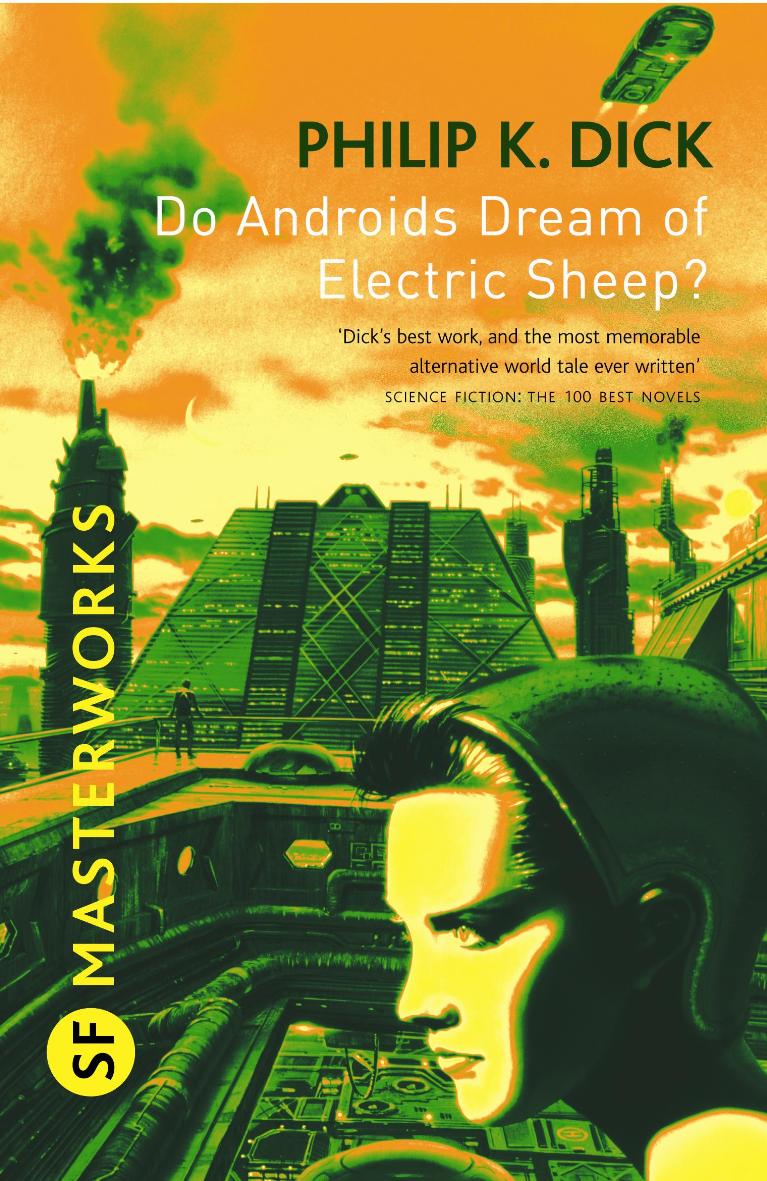
A classic of the dystopian sci-fi kind, this novel presents with subtlety the inner struggles that the most common question of human nature can produce – ‘What am I doing here?’.
What makes us human? Is it our ability to feel or, maybe, our inclination to spiritual? You will be required to do wrong no matter where you go. It is the basic condition of life, to be required to violate your own identity. At some time, every creature which lives must do so. It is the ultimate shadow, the defeat of creation; this is the curse at work, the curse that feeds on all life. Everywhere in the universe. , Mercer (a kind of virtual spiritual being) says to our main character, the android hunter Rick Deckard – perhaps the ability to suffer and the need to make mistakes is the essence of our humanity, who knows?
Do androids dream of electric sheep? is a brilliant story, set in a desolate future, where humanity seems to have lost it all, living on crumbles, and where androids are produced in order to replace the fragile humans at work in the extraterrestrial colonies. Reading between the lines, the novel, set during one day (just as the ancients used to create their stories), is a subtle inquiry for the essence of humanity, technology, feelings and community. Before we consider this novel about empathy, identity and memory we must commit an act of unremembering. We must unremember Blade Runner, the film adaptation whose teeming, rain-sodden, noir-inflected streets and monumental cityscapes cast a long shadow over cinematic science fiction and seeped into the climate of cyberpunk and much near-future fiction., Paul McAuley advises in the preface of this edition. Indeed, while the novel focuses on the inner struggles of Rick, as he understands the futility of his job and, to some extent, existence, the movie adaptation by director Ridley Scott centers on the dystopia, the suffering global city and the darkness which humanity brought upon itself. Of course one cannot compare the complexity of the first with the visual craziness of the second, yet each narrative has its own appeal. As a sci-fi fanatic, I cannot not admire both, because they go their separate ways with great success - each using at fullest the possibilities of their medium. Also, as I read the novel after I saw the film, imagining Harrison Ford as Rick Deckard had its gaining.
Yet, the concept of artificial intelligence and this peculiar detail of electric animals (that is left out in the film) create a whole new meaning for the narrative. Do androids dream of electric sheep? becomes the core existential question for a bounty-hunter that suddenly has doubts about the nature of androids, shattering the black-and-white definition of humanity versus technology. Suffering becomes an attribute of both, though in different ways. Spirituality, the same. So where does one draw the line? Not even Mercerism (the new religion of humanity) has an answer.
A narrative of deep impact, this Philip K. Dick novel is a mixture of marginality, shades of grey, nature versus technology debates, written with a lot of technical details and a huge imagination, considering it is a classic of its genre and one of the primary sources of more than 30 years of Holywoodian sci-fi. In just one day, the main character and his interactions with various android types (personality more than technology) develop what seems to be the humanity’s consciousness. If one, also, considers Isidore (the “leftover” of a post-apocalyptic world) and Deckard’s wife, Iran, we have the big picture of suffering in all its forms, as the key to read further and to define the real nature of mankind.
STRENGTHS
The complexity of the main character, the plot with its ups and downs, the mix of spiritual and technological
RECOMMENDATIONS
A must for SF fans

Niciun comentariu:
Trimiteți un comentariu